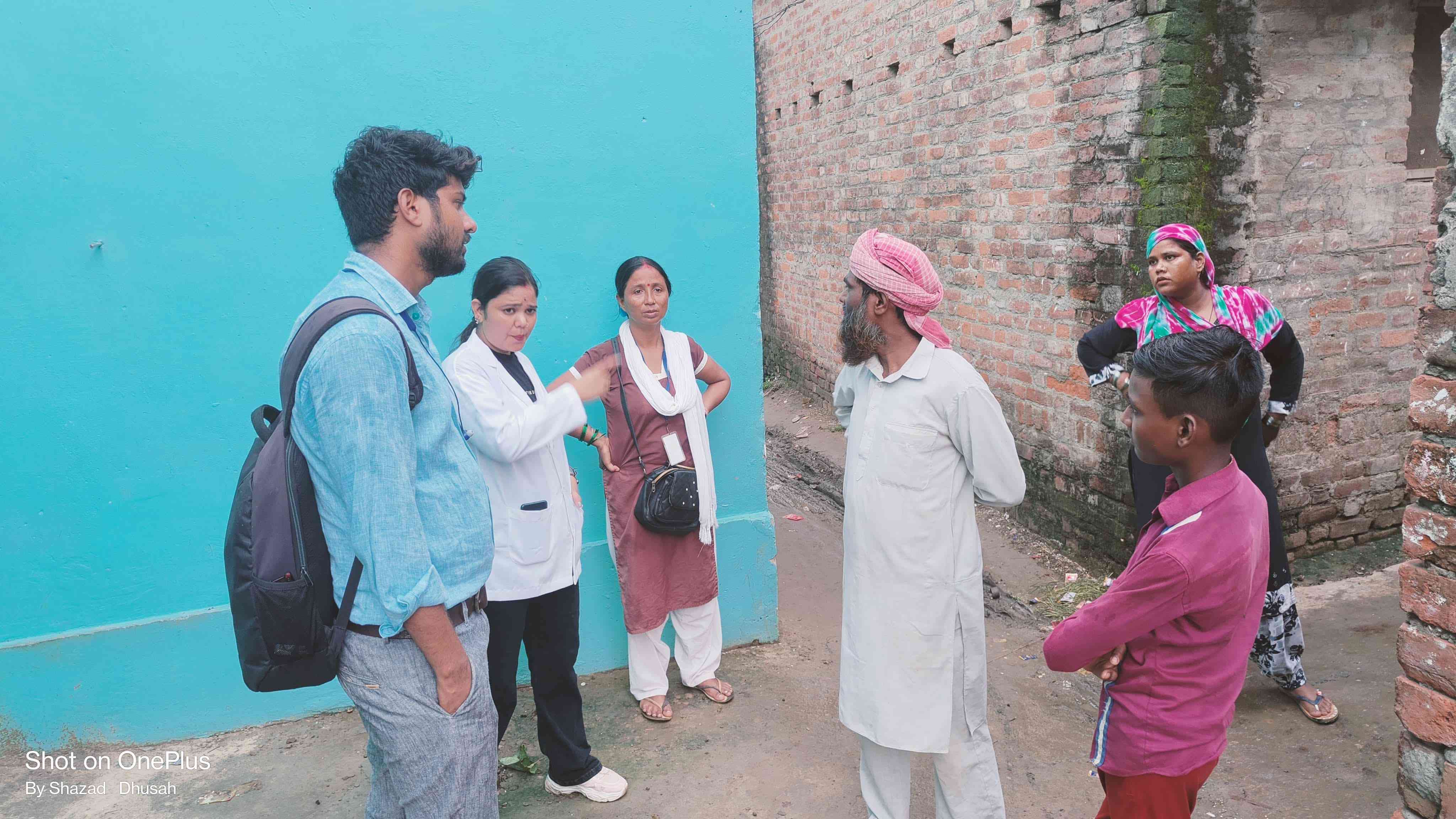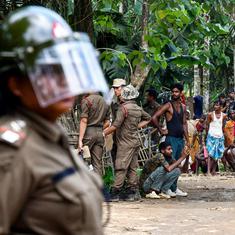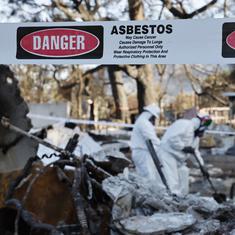In January 2020, an official at a primary health centre in Jharkhand told Khageshwar Kumar about a drug-resistant tuberculosis patient who had stopped taking medicines for the last two months.
Kumar stepped in.
For 18 months, he visited the patient in Parasnath block in Giridih district three times a week, counselling him in sessions that lasted three hours or more.
“He had become suicidal. Even his family had given up on his treatment,” Kumar said. “For hours I would talk to him. I was able to help him because I was a TB patient myself. I can relate to how patients feel.”
Kumar is a TB Champion or TB Vijeta, a term coined for patients cured of the bacterial infection, who are then drafted to the National Tuberculosis Elimination Programme. Their role – to counsel other patients and raise community awareness.
In this case, Kumar’s efforts paid off. He convinced the patient to resume his medicines and helped him through their painful side-effects. The patient went on to finish his treatment in 2022 and is now employed with a private firm.
Khageshwar Kumar was diagnosed with tuberculosis in 2007 and cured the same year.
The 29-year-old began working as a TB Champion in Giridih in 2019 for an honorarium of Rs 6,000 per month. “The amount was small, but I had no other job and I was passionate about TB,” he said.
Since 2023, however, that money has stopped. Several TB Champions have dropped out of the programme in Jharkhand, though some like Kumar do limited volunteer service in spare time.
“For how long can we work for free?” Kumar asked.

A support group
The TB Champion programme was initiated in India in 2016 as a major component under the National Tuberculosis Elimination Programme, which aimed to eradicate tuberculosis by 2025.
The deadline, missed by India, has now been pushed to 2030.
But across India, the programme is under stress, with multiple states complaining of delay in financial reimbursement or a complete freeze in funds.
Each state allocates a different amount as fee for the former tuberculosis patients. In some states, NGOs partner with the government and pay the amount.
In May, Nishant Kumar, joint director of the central tuberculosis division was asked why the programme was struggling at a conference. “TB Champions (programme) has not stopped,” Kumar said. “It is transitioning.”
But several counsellors Scroll spoke to said irregular payments are a problem.
In Haryana, Sagar Verma, who is the TB Champions Network President, said he received Rs 8,000 per month until 2024 through an NGO called World Vision that had partnered with the government. “It stopped due to funds shortage,” he said.
Verma now works at a district hospital in Haryana. “There are over 100 counsellors like me who are jobless in the state. We have approached state authorities multiple times to release funds for this programme,” Verma said. The last time, the counsellors engaged with tuberculosis patients in Haryana was March 2024.
In Odisha, counsellor Kailash Mishra has not received April’s honorarium till date. “The state government said that March funds have not reached them from the Centre.”
Mishra visits four patients every day and does regular district level reporting of cases apart from conducting community meetings to raise awareness. For this, he receives Rs 3,500 a month from the Odisha government. “The payment is frequently delayed,” he said.
“Many of us travel 200 km to district headquarters for meetings. Sometimes we also collect sputum to test for TB bacteria,” Mishra said. Although the National Tuberculosis Elimination Programme permits states to reimburse counsellors for such services, Mishra said no reimbursement is given to them.
Eldred Tellis, founder of Sankalp Rehabilitation Trust, said the issue has become acute in the last few months. “Whenever we approach state officials, they cite fund shortage,” he said. “The central ministry refuses to acknowledge this problem. This has not only cut the source of livelihood for TB Champions, it has also affected patient care.”
Other health activists agreed that the absence of the counsellors would hurt patients. “TB Champions fill a crucial gap in the programme by providing mental health support to patients,” said health activist Ganesh Acharya. “In their absence a major component will be lost.”

‘A vital part’
In 2016, Reach, a non-profit that partnered with the government on tuberculosis control, trained its first cohort of 25 TB Champions and went on to train 3,000 such counsellors.
Ramya Ananthkrishnan, director at Reach, said the aim was to provide a support group for TB patients. “They play a vital part. Some look at advocacy, some get deeply involved in the programme to handle treatment and diagnosis,” she said.
Across India, the National Tuberculosis Elimination Programme has trained over 30,000 champions till 2023.
In Mumbai, a hotbed of drug-resistant tuberculosis, the Brihanmumbai Municipal Corporation relied heavily on the TB Champions to carry out door-to-door visits and engage with the community.
Till last year, Maharashtra paid the highest compensation to the counsellors, at Rs 10,000 a month. Moreover, the counsellors were employed by the civic body on a contractual basis.
But in June 2024, the civic body discontinued the programme. About 25 people employed to counsel patients were rendered jobless.
“Few were retained and assured of payment. But since the last eight months, they have not been paid,” said activist Meera Yadav.
Yadav said that the funds meant for the programme were discontinued by the state’s TB division due to overall budget cuts.
A state government official requesting anonymity said funds under the National Health Mission have been "delayed consistently”.
“We use NHM funds for various diseases, including tuberculosis,” the official said. “This year, the funds were supposed to be disbursed by March. We have not received them till now.”
The delay and underutilisation of funds is apparent in the 2023-24 budget and expenditures made by the National Tuberculosis Elimination Programme.
Out of a budget of Rs 1,888 crore, the programme had spent only Rs 840 crore till March 15, 2024. For 2022-23, the programme spent Rs 910 crore out of the approved budget of Rs 1,666 crore.
Some officials employed with NGOs, who work with the government on tuberculosis, told Scroll that the abrupt end of funds from the United States Agency for International Development this January has also forced them to curtail spending on TB Champions.
Shazad Ahmed, who is a TB Champion in Balrampur, Uttar Pradesh, stopped receiving a monthly honorarium of Rs 8,000 from 2024. He was being paid by Reach.
He still continues to work though in the hope the government will resume payments. “I am working to help other patients. I will continue to work for free as long as possible.”










